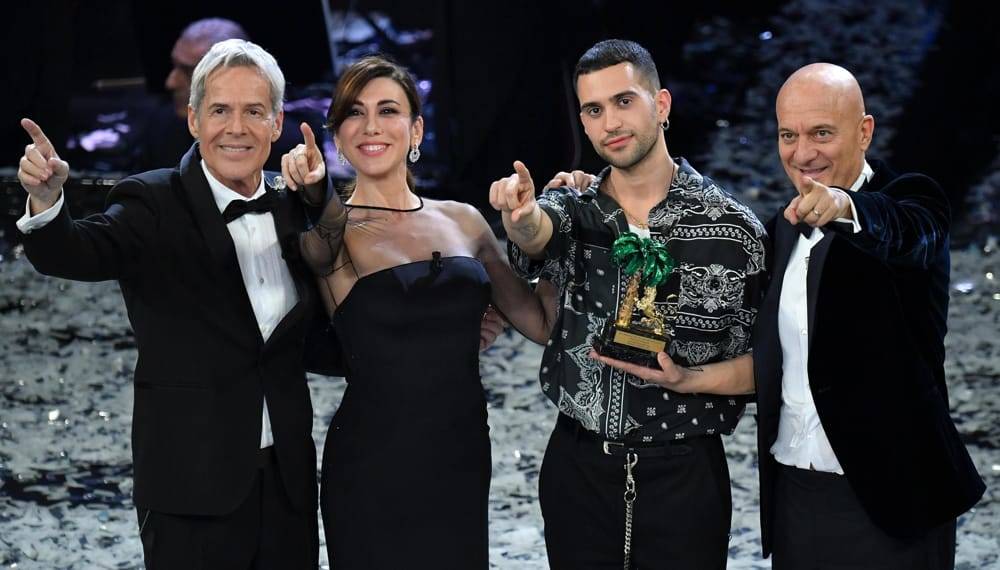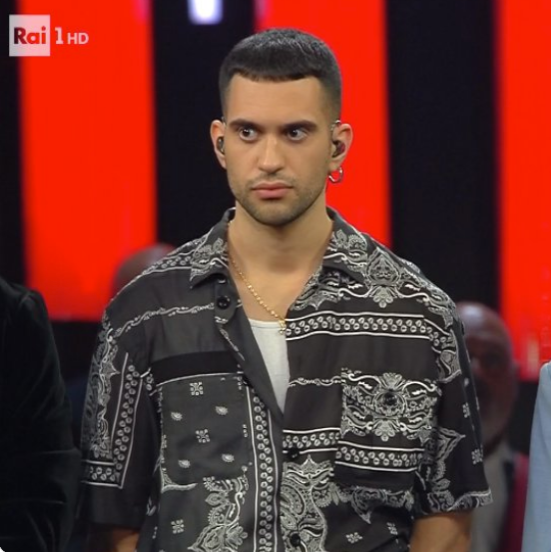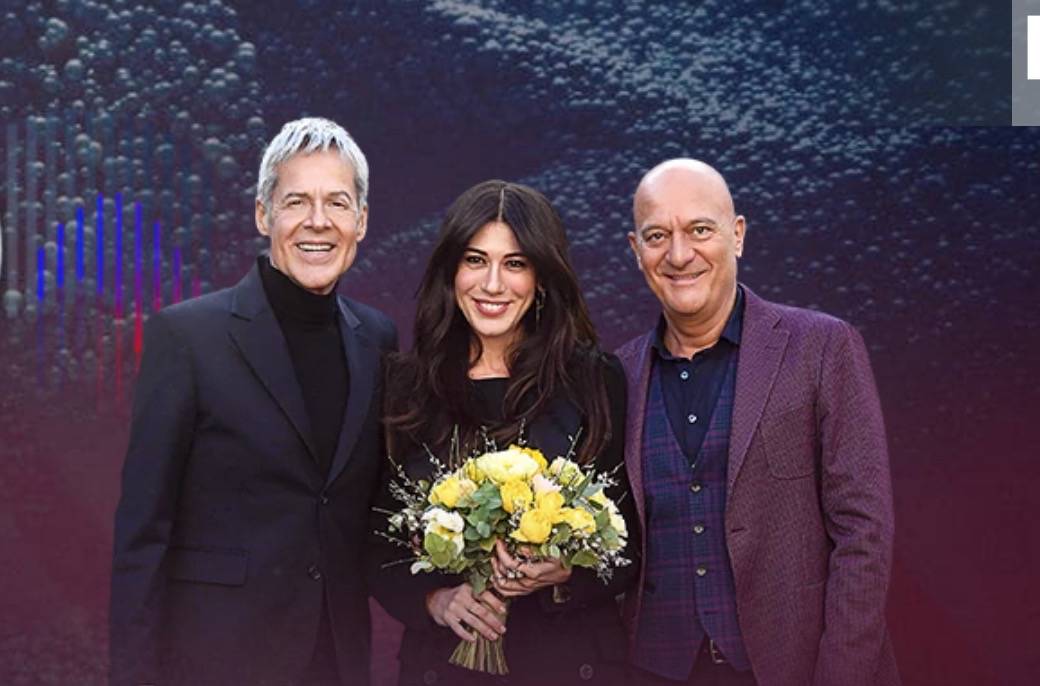Sour Notes From Sanremo Festival Linger in the Air
A few sour notes from the 69th edition of the Sanremo music festival still linger in the air, one month after the end of the festival February 9. Viewed on TV by at least 12 million, for most festival lovers -- and I am one -- it was a great success. A ticket for a seat in the stalls for the five-day festival in the Ariston Theater sold for $1,464 and, for one in the gallery, $763. Even so, setting a record, by Jan. 21 tickets were already sold out. "A magical week," sentenced the popular TV Sorrisi e Canzoni magazine. During the festival the New York Times celebrated Sanremo with a long article of praise: "Sanremo is a national gathering, like the Academy Awards in the United States," wrote Beppe Severgnini, the correspondent who was one of the judges. "It's a truce in quarrelsome times. It's predictable and reassuring."
The winner, Mahmood (it is fashionable for a performer to use just one name), will represent Italy at the the international Eurovision Song Festival that will take place at Tel Aviv in May and is broadcast worldwide. In his quasi-rap song "Soldi" (Money), Mahmood complains about a girlfriend interested only in money. The child of a Sardinian mother and Egyptian father, in the lyrics Mahmood wrote a few words in Arabic, "Waladi waladi habibi ta'aleena." Elsewhere tucked into the lyrics are a few other references to a Mideastern connection that came as a novelty for Sanremo audiences:
What seemed love was something else
During Ramadan she drinks Champagne
On TV there's Jackie Chan
Smoking the nargile
Presenting the songs and singers were musician Claudio Baglioni and actors Claudio Bisio and Virginia Raffaele. When Bisio announced the day after the festival that he would not participate in any future festival, the gossip mills churned. Reporter Anna Bandettini of Milan wrote that, along with the joy and success of the festival, came "polemics and disappointments." The festival week generated "enormous enthusiasm," she wrote, "but also a poisonous [atmosphere] affecting even an artist like Bisio, who is diplomatic and peaceable, and has his head on his shoulders." Bisio himself acknowledged only that, "At Rai TV it was heavy weather and all very complicated. Behind the scenes the atmosphere was of fear."
Some saw a political connection. In the digital daily affaritaliani.it, critic Angelo Maria Perrino disagreed with this. For him, Mahmood's success cheated both TV viewers and the show's sponsor, the telephone company TIM. "Someone is bound to insinuate that Severgnini and company wanted to strike out at Matteo Salvini and his populist 'Italians first.' Maybe so, but that is not the point... The problem is that [the jury's selecting Mahmood] came at the price of those Italians who voted from home, paying for their phone calls out of their own pockets." This is simply "not serious," Perrino complained.
In fact, this was a particularly contentious element. Mahmood was elected by two-thirds of the eight-member jury (63.7%) inside the Ariston Theater, but rejected by the thousands of phone-in TV viewers; only 14% of those chose Mahmood. By the same token almost half of those phoning in (over 46%) preferred the singer whose stage name is Ultimo (real name: Niccolò Moriconi), winner of the Sanremo Festival last year. The split between the TV audiences and the jurors inside the Ariston theater was repeated: only one quarter of the jury voted for Ultimo.
In a day-after video of outrage, an angry Ultimo complained. "People paid their money to phone in and vote, but their votes were completely ignored by the journalists and jury," he said. "If an artist has three times the votes [Mahmood had], a jury of eight people simply cannot ignore this." (Watch the video >>)
Some viewers simply disliked the rap concept and a certain lack of tradition, rather than Mohmood himself. Enrico Nigiotti's song "Nonno Hollywood" came in only tenth, but, played on the radio day after day in Italy, his song gained in popularity for its poetic sense and traditionalism. Nigiotti dedicated the song to his grandfather, and in one line he sings, "I hold tight to your advice/Because you know that here things are not easy...." His voice, the words, music and concept of a love song to his grandfather drew myriad admirers. One, Giuseppe C., wrote, "This song is a true masterpiece and you are the real winner at Sanremo." From other admirers: "This poem, dedicated to our grandfathers, is the true Sanremo music, which blends sentiment and melody." Said another: "This song will remain eternal in the history of Italian music and should have won at Sanremo." The song begins:
Certain things hurt
You can't hold it back
There's no way to change what you don't like
They say that with time all will pass
But when will it pass?
Fact is, it just doesn't pass.
(The above is my translation: to hear and see the real thing go to this video >>)









































i-Italy
Facebook
Google+
This work may not be reproduced, in whole or in part, without prior written permission.
Questo lavoro non può essere riprodotto, in tutto o in parte, senza permesso scritto.